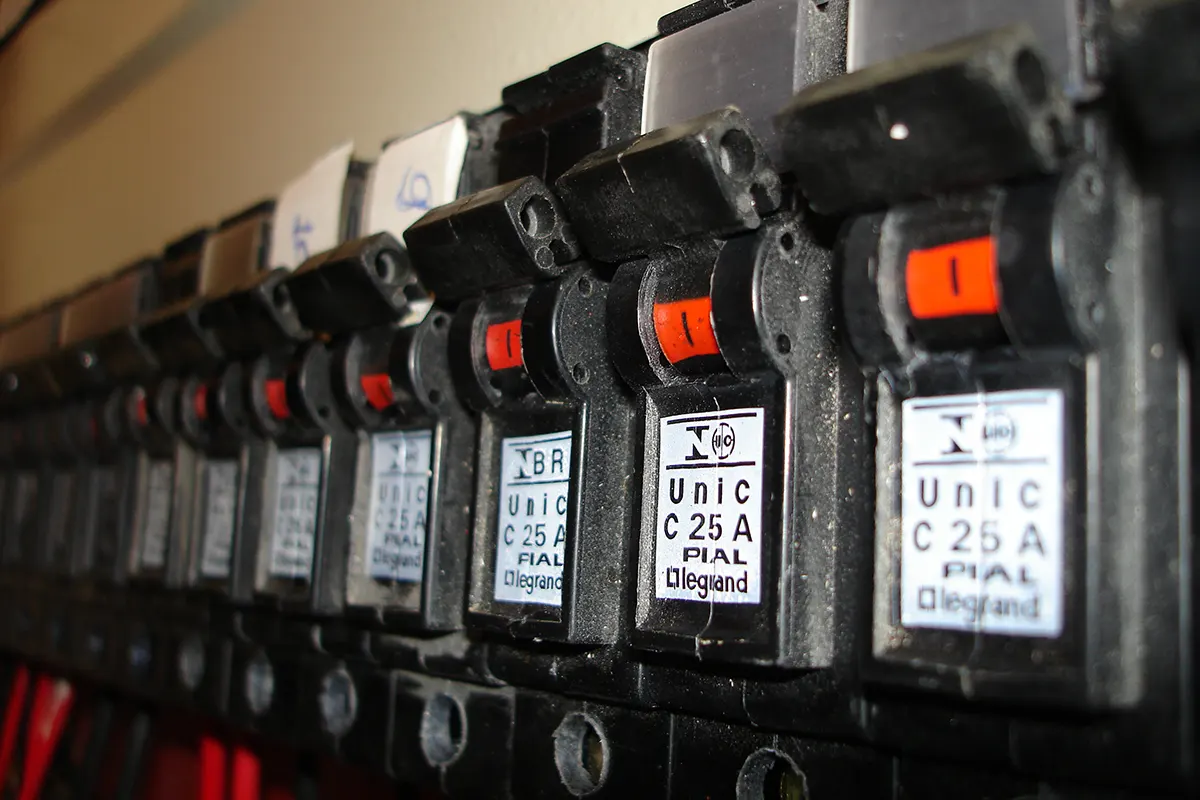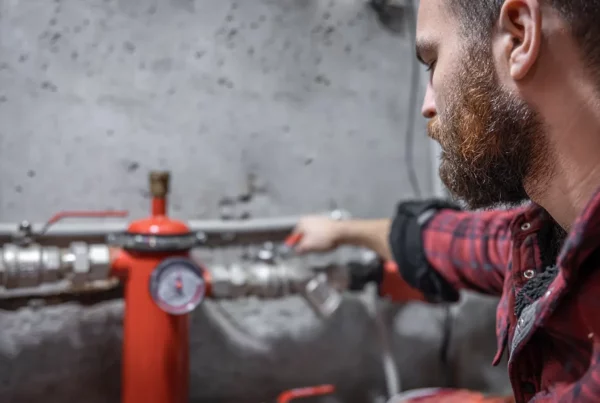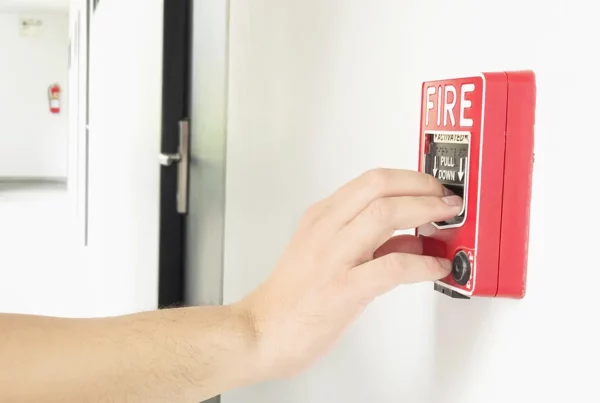
Your home’s electrical system has a system of circuits, which are controlled and protected by circuit breakers or fuses. Circuit breakers are switching devices that are operated either manually or automatically. The breakers help protect electrical circuits from damages resulting from excess electrical currents.
Sometimes, your circuit breaker keeps tripping, even when you have nothing plugged in. When your circuit breaker keeps tripping, you must head where your circuit breaker is located to get the power back on. But you need to know what is causing the tripping before resetting your circuit breaker.
Here are a couple of reasons why your breakers keep tripping.
1. Circuit Overload
Circuit overload is one of the major reasons why your breakers keep tripping. Usually, circuits overload when excess electrical currents are flowing through them. When there’s too much electricity going into one wiring loop, it could lead to excess heat.
So, to prevent sparks, fires, or explosions, the breaker will trip. That results in all the electricity getting cut off from that circuit. Whenever this happens regularly, you’ll most likely be disappointed. Individuals who live in older homes will most likely experience tripping because their houses have different wiring configurations than modern ones.
The wiring may not be set to handle some of the modern appliances we use. When one area of your home consumes too much power, you’ll most likely experience a circuit overload. Fortunately, fixing this issue isn’t so complicated.
You need to shift the amount of power that’s being used in the specific area. However, we mostly advise people to get a professional to fix a circuit overload because they may not have the skills. If you don’t want to move the appliances from one area, you might consider re-wiring. Although this process is more tedious compared to moving the appliances, electrical experts will get it done seamlessly.
2. Short Circuits
Short circuits are another major cause of breakers tripping. A short circuit can be dangerous, and it happens when a hot wire touches a neutral wire in an electric outlet. When this occurs, a significant amount of current flows through the circuit, producing more heat than what your circuit can handle.
This occurrence causes your breaker to keep tripping in order to prevent harmful outcomes such as fires. A short circuit may also happen due to loose connections or some faulty wiring. When this happens, you will notice a burning smell, which normally gets left around your breaker. You might also notice a black or brown discoloration around the breaker.
Whenever you suspect that your electrical system has a short circuit, you need to call experts to handle it. Additionally, you should refrain from plugging appliances in the outlet that regularly trips your breaker. Plugging items therein might cause you to get an electrical shock.
Moreover, an appliance that has dilapidated wiring could cause a short circuit when you plug it in. If you notice that the issue is with a specific appliance, you need to have the wiring repaired immediately. Never use an outlet or an appliance until it gets fixed.
3. Ground Fault Surges
Your breakers could also trip because of ground faults. Normally, electricity searches for the ground. And sometimes, this could result in a ground fault. A ground fault is almost similar to a short circuit. However, it happens when a hot wire comes into contact with a ground wire, which is made of bare copper. It might also happen when the ground wire touches the side of a metal outlet box that’s connected to it.
When a ground fault happens, the electricity shifts from its intended path and goes into the ground. The effect causes more electricity to go through the wire, but the circuit cannot handle such an amount. Therefore, your circuit breaker trips to protect your electrical system from overheating or potential fires.
Ground faults are often frustrating because homeowners can hardly diagnose or fix them. The only option is to rely on electrical experts. Luckily, this problem is becoming an issue of the past because modern wiring features ground wires. These wires offer electrical currents that deviate from their intended path with a route to the ground.
Ground faults could also become more serious when moisture is present in your switches, appliances, or outlets. That’s why we always advise people to contact qualified professionals whenever they suspect a ground fault.
You need to know that the human body is a good conductor. Therefore, messing with electrical currents that have swayed from their path without proper training could be fatal. Sometimes, ground faults happen because of faulty wiring. So, whenever repairs are being made, one has to exercise caution to avoid touching dangerous live wires.
4. Arc Faults
Your breakers may also keep tripping because of arc faults. An arc fault occurs when corroded or loose wires create a short contact, which results in a spark or an arc. Whenever this happens, some heat is released, possibly risking electrical fires.
You can identify an arc fault when your switches produce a hissing sound, or when an outlet is buzzing. An arc fault can pose a significant risk to your home and its inhabitants. Therefore, whenever you identify it, you need to call professionals to assess the issue.
In case of an arc fault, a professional will most likely install an arc fault circuit interrupter (AFCI). This is a special kind of circuit breaker, which detects wiring issues at an early stage before they result in ground faults or short circuits.
5. A Defective Circuit Breaker
One of the most commonly ignored reasons for tripping is a defective circuit breaker. Like most electrical appliances, circuit breakers deteriorate over their lifespan. If your home has an old circuit breaker, there’s a possibility that it won’t produce electricity anymore.
If that is the reason your breakers keep tripping, you must replace them. You should also consider regular breaker maintenance to reduce wear and tear. You can identify a defective breaker if you notice a burnt smell or scorch marks on the breaker box. You might also be unable to reset a damaged breaker.
How to Reset Your Circuit Breaker
Having a breaker that trips constantly can be quite frustrating. When this happens, you need to reset it. To accomplish this, you need to turn off your breaker by moving the switch and then switching it back on.
You don’t necessarily need to call a professional to do this as it is a light task. However, we always advise people to exercise proper safety measures. You should wear safety goggles and gloves, and also ensure to stand at a safe distance in case of sparks.
Before you plug and unplug any appliances, you need to reset your breaker to establish why it keeps tripping.
How Do You Determine if Your Circuit Breaker has Tripped?
The largest indicator of a tripped circuit breaker is when the power goes out in a specific area in your home. It doesn’t affect the entire house. Another indicator of this problem is when you identify that multiple outlets in one of your rooms have stopped working.
When your circuit breaker is tripping, you can call a professional to come to identify the issue. Usually, the assessment commences with checking your home’s electrical circuits at the panel or fuse box. You need to check the switches in the fuse box to know which one has an issue.
However, some areas may have two fuses. To ensure that you’re working on the right one, ensure that they’re properly labeled. Luckily, you don’t have to struggle with knowing all these. You can simply call professional electricians to get the job done.
Safety Tips
Electricity can be dangerous if handled carelessly. Before you check your electrical panels or reset your circuit breaker, you must adhere to proper safety measures.
Notably, you should not repair electrical equipment and cords unless you’re authorized or qualified. Any slight mistake could result in fatality. You should also have a skilled and qualified electrician assess your electrical system, especially where moisture may have accumulated before resetting it.
Additionally, if you’re fixing areas with damp locations, you must inspect the electrical cords to determine whether they’re in excellent working conditions. In case you identify any defects, follow the appropriate steps to avoid electrical harm. Most importantly, you must exercise caution when working on the electrical system. The wisest move would be to have a professional handle any fixes.









